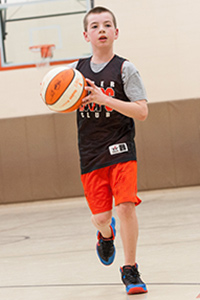TMJD occurs when one or both hinges connecting upper and lower jaws don't work properly. People who grind their teeth, clench their jaw or overzealously yawn are more susceptible to TMJD. TMJD also can result from blunt force and may be hard to recognize in young athletes.
The temporomandibular joint (TMJ) is part of a complex group of muscles, nerves, ligaments, discs and bones responsible for moving the lower jaw in a wide range of positions. Athletes in contact sports are at higher risk for jaw injury that can result in long-term TMJ damage or dislocation.
TMJD can affect your ears, teeth, throat, jaw and neck and symptoms may include:
- Clicking
- Popping
- Painful chewing
- Jaw locking
- Headaches
- Dizziness
- Debilitating jaw or teeth pain
- Swelling of the jaw, throat or neck
- Muscle trismus (limited ability to open the mouth)
While blunt force may trigger TMJD, gum chewing, fingernail biting, stress and poor posture also can contribute to its cause.
Most TMJ disorders can be treated with rest, ice and anti-inflammatory medications for two to four weeks. Further treatment may include bite splints, physical therapy, or in some cases, surgery.
If you have limited range of motion in your jaw or pain that is not resolving, see your doctor. If you had a dislocation, you may be at higher risk for a second dislocation.
Using a mouth guard can help prevent further jaw, mouth or other facial injuries.
Share comments or questions on this story. Email sports.medicine@marshfieldclinic.org
